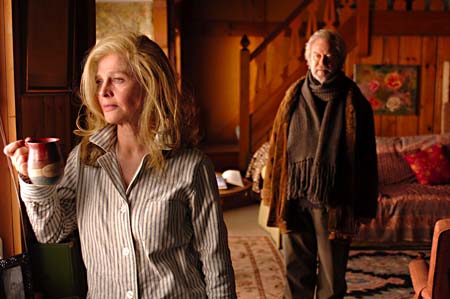
The 2007 Hola Mexico Film Festival is all about new beginnings. For starters, the festival is only one year old, having been founded by Festival Director Samuel Douek just last year. “At the moment I’m deliberately bringing a wide selection of films to the festival, because I still don’t know my crowd that well,” Douek confesses. “I’m just trying to bring something for everyone. I try to bring some comedy, some drama, some thriller and some horror – just bringing films from all the genres that are happening in Mexico.”
Secondly, the festival also represents new beginnings for the Mexican film industry. Following a brief hiatus from the international cinema scene, Mexican film is once again garnering popular attention, thanks to the efforts of “The Big 3” – Alejandro Gonzalez Iñárritu (Babel), Guillermo del Toro (Pan’s Labyrinth) and Alfonso Cuaron (Children of Men). “These three directors are not necessarily making ‘Mexican cinema,’ but are shifting the eyes of the world towards Mexico,” Douet suggests. “They are forcing people to say, ‘OK so these guys came from Mexico; let’s see what else is from there.’”
In celebration of “The Big 3,” the festival presents its ‘A Tribute to Mexico’ program, featuring the debt films of each of the three directors (Iñárritu's Amores Perros, Del Toro’s Cronos and Cuaron’s Solo con tu Pareja.) In setting their sights towards an international audience, all of these directors have in some sense forsaken that strong Mexican filmmaking essence in favour of Hollywood styling, so this program celebrates their traditional origins. “Each of the three films represents the really good beginnings of their careers, while it’s really interesting to see what they were doing with not that much money, and when they were still making films for an exclusively Mexican audience,” Douet explains.
For the remainder of the program, Douet has similarly focused his attention upon debuting directors. He gushes; “There are all these new directors coming out right now – it’s a whole new filmmaking generation! So, a lot of the films in this festival are the first or second films from directors, and these are really the new faces of Mexico cinema. They have such crazy ideas and their filmmaking is so good and so artistic, with influences as diverse as Indian or French cinema. And I think these are the films that really represent a growing Mexican film industry.”
Douet is particularly thrilled by the selection of documentaries on offer. This year there are two. One is 1973, the remarkably real romantic comedy story about a woman who, in search a lost love, contacts three men of the exact same name, promting each of them to respond in turn. The second is Born Without, Eva Norvind’s documentary about armless musician/actor, Jose Flores (completed Norvind’s daughter after Eva’s death in 2006). “They are so amazing this year, I’ve been really surprised,” Douet remakrs, “And the stories that are behind these two documentaries are almost more remarkable than the documentaries themselves!”
While all these filmmakers may be newcomers to the Mexican scene, Douet emphasizes the fact that they remain true to the Mexican film spirit. “When people ask me what is characteristic about Mexican cinema I would say ‘the reality.’ I think people like the idea of the raw or the real, or something that isn’t fake, just like Mexican cinema.” Then, in an almost-awkward sounding whisper, he recalls how last year he spotted several movie goers leaving cinema halls early, perhaps because they could not handle such an intense dose of reality. “I don’t think I’ve seen a single person leave the cinema this year,” he laughs. And for only his second attempt at directing a festival, that’s not bad at all.






























